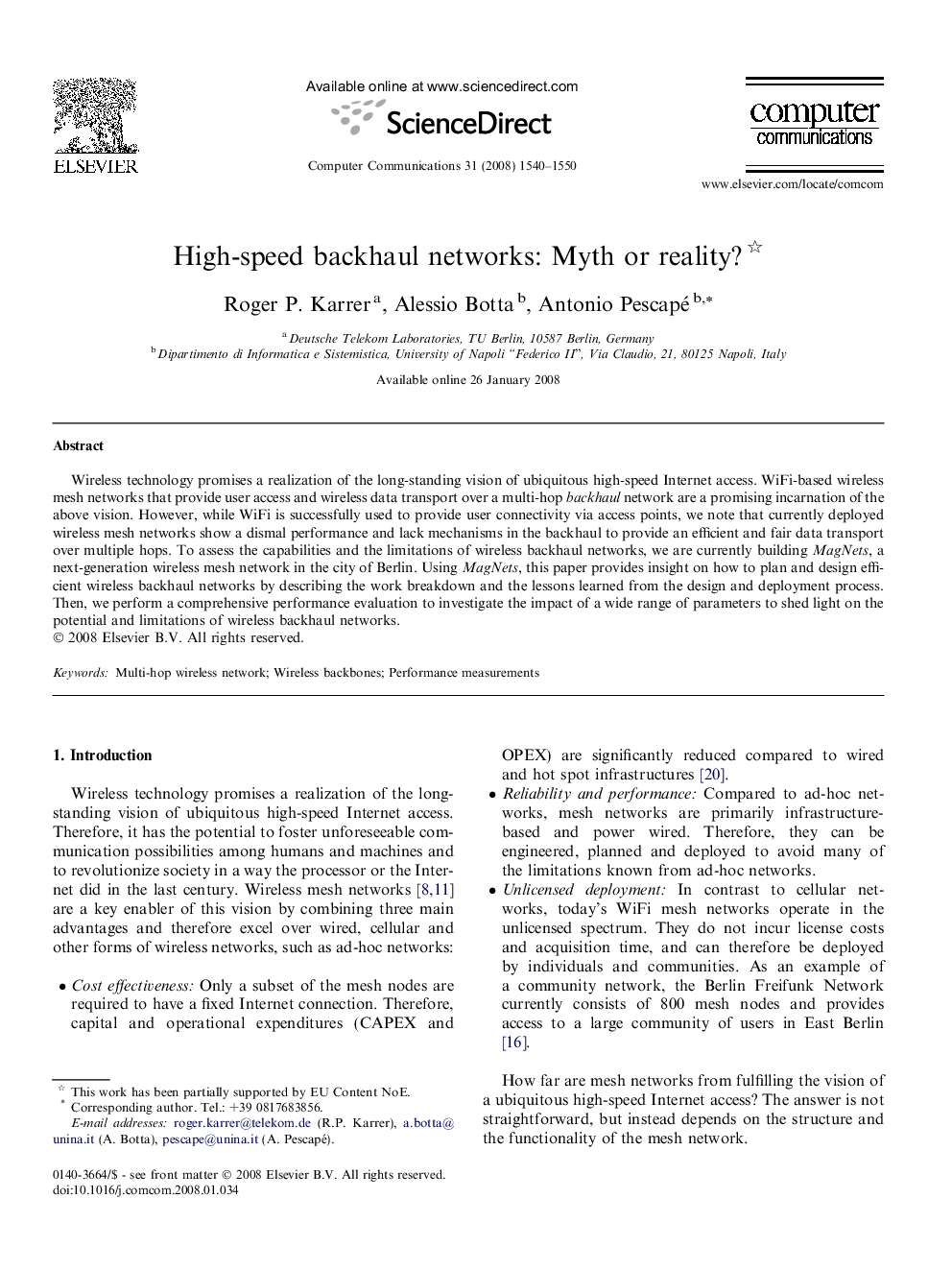| Article ID | Journal | Published Year | Pages | File Type |
|---|---|---|---|---|
| 450461 | Computer Communications | 2008 | 11 Pages |
Wireless technology promises a realization of the long-standing vision of ubiquitous high-speed Internet access. WiFi-based wireless mesh networks that provide user access and wireless data transport over a multi-hop backhaul network are a promising incarnation of the above vision. However, while WiFi is successfully used to provide user connectivity via access points, we note that currently deployed wireless mesh networks show a dismal performance and lack mechanisms in the backhaul to provide an efficient and fair data transport over multiple hops. To assess the capabilities and the limitations of wireless backhaul networks, we are currently building MagNets, a next-generation wireless mesh network in the city of Berlin. Using MagNets, this paper provides insight on how to plan and design efficient wireless backhaul networks by describing the work breakdown and the lessons learned from the design and deployment process. Then, we perform a comprehensive performance evaluation to investigate the impact of a wide range of parameters to shed light on the potential and limitations of wireless backhaul networks.
